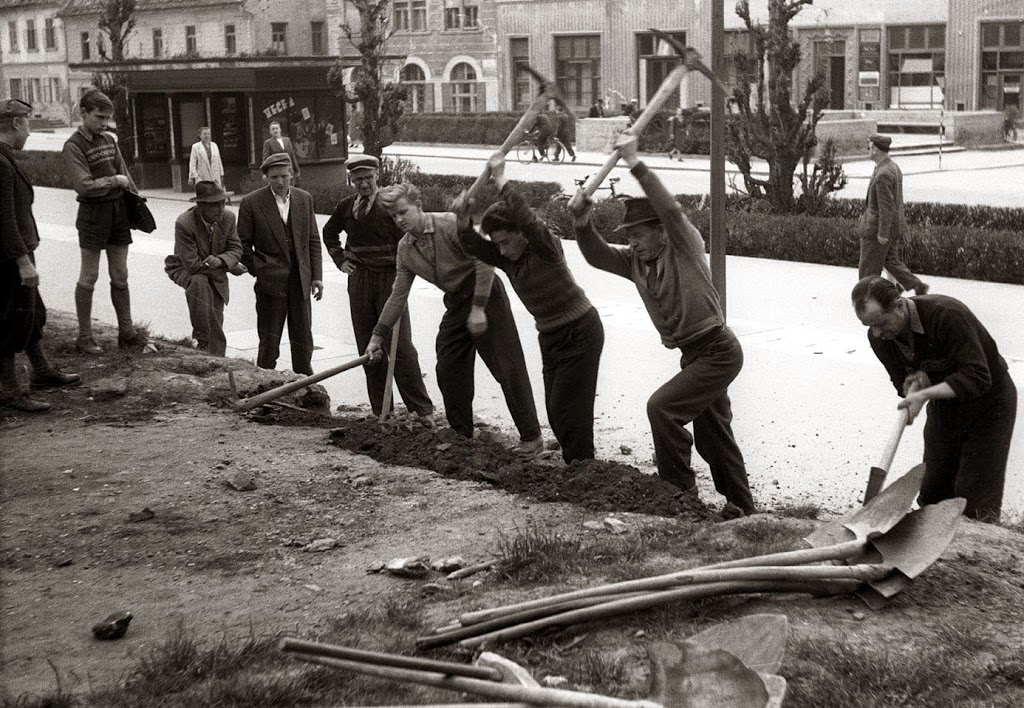It’s 5 am and time to start the day again. He rolls out of bed and wipes the sleep from his eyes. Groggily he shuffles to the bathroom to brush his teeth and a sense of dread comes over him as he stares into the mirror. It’s Monday, time to face another week of the doldrums of a job he hates, working with people he doesn’t like. Hopeless, he goes about his day with no real sense of purpose.
This is how so many of us view work, isn’t it? We feel like we’re “working for the man,” and the man will always keep you down. We are cogs in a machine, grinding along—often feeling alone—living for quitting time and weekends.
Made for Work
I’ve been back at work for about six weeks now. I started part-time, but for the last few weeks have worked practically full time (shhhh…don’t tell my doctor). I’ve been blessed to have enough energy and stay healthy, feeling incrementally better most every day. My week is interrupted with labs and occasional chemotherapy and doctor appointments, all of which have gone well lately. I’ve started a new position since returning and the tempo of my work has increased. Further, next week will be the 6-month mark since the transplant; many patients aren’t able to return to work for a year. This is more evidence of the good work that God is doing in me.
I really love and am grateful for my work. It’s a calling. I was made for it. In fact, we were all made for work. When God created man, he placed him in the Garden to “tend and look over it” (Genesis 2:15 NLT). Working is a natural, God-intended use of our life and should be viewed as worship to our Creator. We spend so much of our lives at work that it’s important to view it in the right context.
So whether you eat or drink, or whatever you do, do it all for the glory of God. (1 Cor. 10:31 NLT)
A Different Perspective
Allow me to make a bold statement: if I hate my job, then the problem is with me, not the job. It’s not my boss’s fault or my coworkers’. It’s mine. Why? Because I chose it (granted, the options may have been few) and because I have complete control over my attitude and perspective.
I might have a bad boss, but I can still learn something from him. My co-workers may be mean, but they still need God’s love. My job might be boring, but it’s still a place where I can influence others and model Jesus’ character.
Rather than being an “employee” who punches a time card, be a “team member” who cares about and contributes to the success of the organization. Rather than being a cog in the machine with no sense of purpose, be a “linchpin”—someone who brings people and processes together to make a difference. In doing so, you add value to the company and make yourself indispensable1. Be excellent and enthusiastic at what you do. Good intentions and character don’t go very far if they’re not backed up by results.
Never be lazy, but work hard and serve the Lord enthusiastically. (Romans 12:11 NLT)
Don’t work for the man. Work for the Man. As believers, our work ethic, contribution, and integrity in the work place should stand out. It ought to be that, even if our bosses and coworkers don’t agree with our theology, they sure want to work with more Christians because they’re trustworthy, hard workers. If we do that, I’ll bet the theology won’t be so hard to accept.
Work willingly at whatever you do, as though you were working for the Lord rather than for people. (Colossians 3:23 NLT)
1. Godin, S. (2010). Linchpin: Are You Indispensable? New York: Penguin Group.

